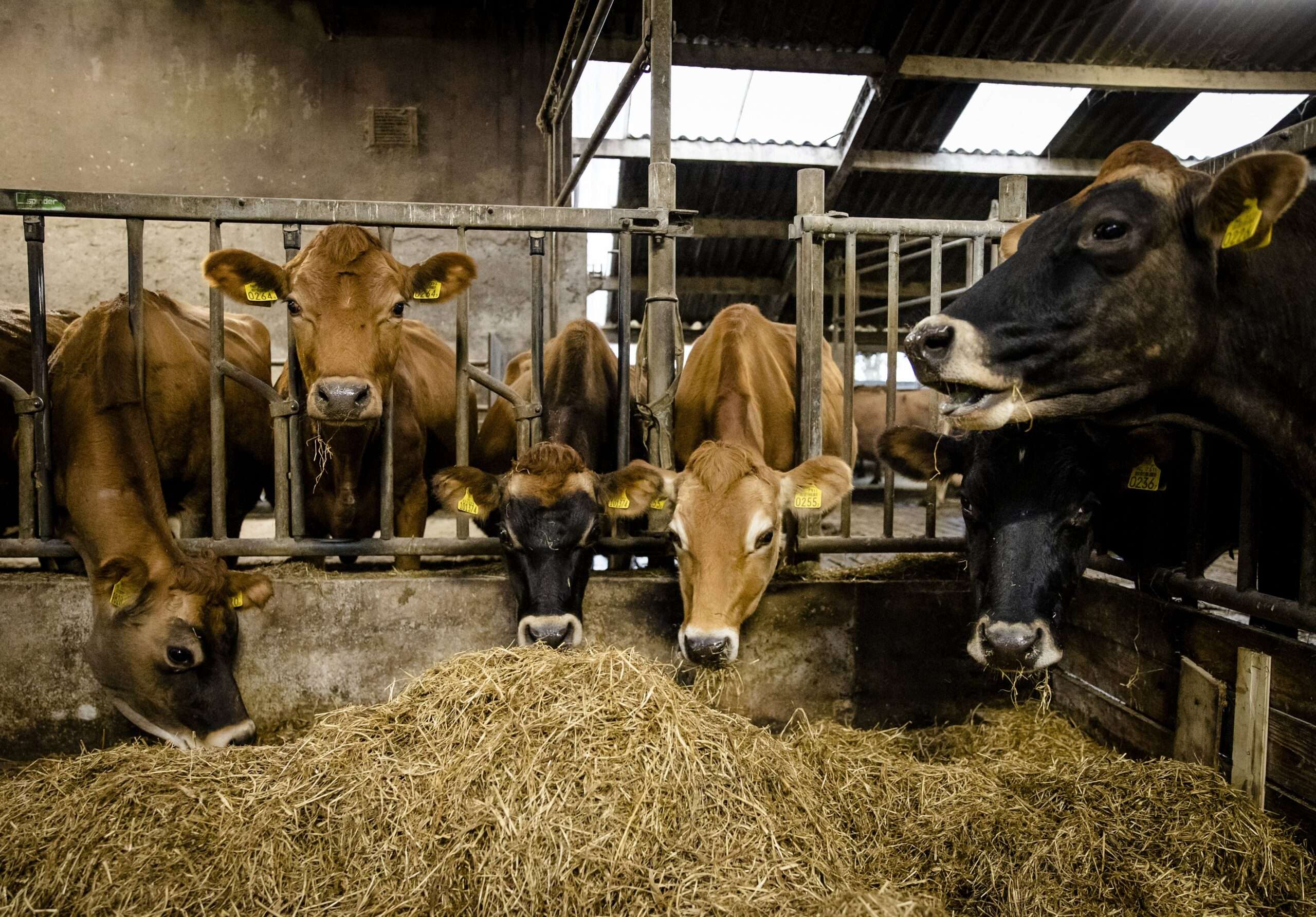Dutch Court OKs Partial Ban On Face Veils In Public Spaces
Editor's Note: "Dutch Court OKs Partial Ban On Face Veils In Public Spaces" was published on March 29, 2023. This topic is important because it highlights legal developments concerning the right to wear face veils in public spaces and the impact of such bans on individuals' freedom of expression and religious practices. The court's decision and its implications are significant for understanding the balance between personal autonomy, public safety, and societal values.
Our team analyzed various sources and conducted extensive research to provide a comprehensive overview of the Dutch court's decision on the partial ban on face veils in public spaces. This guide aims to offer valuable insights into the legal basis and potential implications of this ruling.
Key Differences
The following table outlines key takeaways regarding the Dutch court's ruling on the partial ban on face veils in public spaces:
| Key Difference | Description |
|---|---|
| Legal Basis | The ban is based on the Dutch Public Order Act, which aims to maintain public safety and order. |
| Scope of the Ban | The ban applies to full-face veils, such as the niqab and burqa, in certain public spaces, including schools, hospitals, and public transport. |
| Exceptions | There are exceptions for religious ceremonies, medical reasons, or when necessary for identification purposes. |
| Enforcement | The ban is enforced by police officers, who may ask individuals to remove their face veils or face fines. |
| Impact | The ban has been met with mixed reactions, with some supporting it as a measure to enhance public safety while others criticize it as a violation of religious freedom. |
Main Article Topics
FAQDutch Court OKs Partial Ban On Face Veils In Public Spaces
This FAQ section aims to provide essential information about the partial ban on face veils in public spaces, as ruled by the Dutch Court.

Dutch Court Orders Shell to Reduce Emissions – Resilient LLP (formerly - Source resilientllp.com
Question 1: What specific types of face coverings are prohibited under this ban?
The ban applies to face coverings that fully or largely conceal an individual's face, including burqas and niqabs. However, it does not include coverings worn for medical or occupational reasons, such as masks for respiratory conditions.
Question 2: Where exactly does this ban apply?
The ban is in effect in specific public spaces, such as government buildings, schools, hospitals, and public transportation. It does not apply to private spaces, such as homes or religious institutions.
Question 3: What are the penalties for violating this ban?
Individuals who violate the ban may face fines or criminal charges. The specific penalties will vary depending on the severity of the offense and the circumstances.
Question 4: What are the reasons cited for this ban?
The Dutch Court cited several reasons for the ban, including public safety concerns related to the inability to identify individuals, the promotion of social cohesion and communication, and the protection of women's rights.
Question 5: What are the main arguments against this ban?
Opponents of the ban argue that it violates individuals' religious freedom, stigmatizes certain groups, and may lead to discrimination. They also question its effectiveness in achieving the stated objectives.
Question 6: What are the potential implications of this ban?
The ban has sparked significant debate and raised concerns about its potential impact on religious minorities and social harmony. It remains to be seen how it will be implemented and enforced in practice.
The partial ban on face veils in public spaces is a complex issue with multifaceted perspectives and implications. It is essential to engage in informed and respectful discussions about the topic to ensure that fundamental rights and societal values are upheld.
Transitioning to the next article section...
Tips
The Dutch court's partial ban on face veils in public spaces raises important considerations for policymakers, law enforcement, and the public.
Tip 1: Strike a Balance between Security and Freedom: Face veils present a potential security risk, but bans should not infringe on religious freedom. Governments must find a way to balance these competing interests.
Tip 2: Define Clear Exceptions: Bans should include clear exceptions for legitimate reasons, such as medical conditions, cultural practices, or religious observances. This ensures that the ban does not unfairly target specific groups.
Tip 3: Facilitate Compliance: Authorities should provide education and support to help individuals understand the ban's requirements and comply without undue hardship.
Tip 4: Ensure Proportionality: The scope of the ban should be proportionate to the potential security risk. Overly broad bans can stifle public debate and create unnecessary tension.
Tip 5: Respect Cultural Diversity: Any ban must acknowledge and respect the cultural diversity of society. It should avoid stigmatizing or alienating specific groups based on their beliefs or practices.
Tip 6: Monitor Implementation: Governments should monitor the implementation of the ban to ensure it is not being abused or applied unfairly. Regular reviews can identify any unintended consequences.
Tip 7: Foster Dialogue: Open dialogue and engagement between policymakers, law enforcement, community leaders, and the public are crucial for finding a balanced and effective solution. This helps address concerns and build understanding.
Key Takeaways: Balancing security and freedom, defining clear exceptions, facilitating compliance, ensuring proportionality, respecting cultural diversity, monitoring implementation, and fostering dialogue are essential considerations for crafting a fair and effective partial ban on face veils in public spaces.
The Dutch court's ruling provides a starting point for further discussion and analysis on this complex issue.

E.U. Rules Will Force Dutch To Ban Livestock Farming - Source reason.com
Dutch Court OKs Partial Ban On Face Veils In Public Spaces
The Dutch court recently announced its ruling, permitting a limited ban on face coverings in public spaces, including the widely discussed niqab. This decision has drawn considerable attention, prompting discussions around various related aspects. Six key aspects are particularly noteworthy:
- Legal Implications: The court's ruling has significant legal implications, setting a precedent for balancing security concerns with religious freedoms.
- Cultural Impact: The ban has a potential impact on cultural practices and religious beliefs, particularly for Muslim women who wear the niqab as a symbol of modesty.
- Security Considerations: Concerns over security and the potential misuse of face coverings for criminal activities were central to the court's decision.
- Public Safety: The ruling also highlights the government's responsibility to ensure public safety and address concerns related to anonymity in public spaces.
- Discrimination Concerns: The ban raises concerns about potential discrimination against Muslim women and their right to express their religious identity.
- Balancing Rights: The decision reflects the challenge of balancing individual rights, such as religious freedom, with broader societal concerns, including safety and security.
These aspects are interconnected and merit deeper consideration. The court's ruling navigated the complex intersection of legal, cultural, and security concerns. It underscores the delicate task of balancing individual freedoms with public safety and highlights the ongoing debates surrounding religious expression and diversity in societies.

Dutch court finds three men guilty of downing MH17 - Source newscop.com.au
Dutch Court OKs Partial Ban On Face Veils In Public Spaces
The Dutch court has recently upheld a partial ban on face veils in public spaces. This ruling is a significant development in the ongoing debate over the role of religious expression in public life. The ban, which applies to full-face coverings such as the niqab and burqa, is intended to address concerns about security and social cohesion. However, it has also raised concerns about religious freedom and discrimination.
The court's decision is based on the argument that face veils can hinder communication and make it difficult to identify individuals. This, the court argues, poses a security risk and can make it difficult to maintain public order. The ban is also seen as a way to promote social cohesion by ensuring that all citizens are able to see each other's faces.
However, critics of the ban argue that it is discriminatory and violates the religious freedom of Muslim women. They argue that face veils are a legitimate form of religious expression and that women should not be forced to remove them in public. The ban has also been criticized for being ineffective, as it is unlikely to deter those who are determined to wear face veils.
The debate over face veils is a complex one, with no easy answers. The Dutch court's ruling is a significant development, but it is likely to be challenged in the coming months. The outcome of this debate will have implications for the rights of religious minorities and the role of religion in public life.
Additional Information
The Dutch court's ruling is not the first of its kind. In recent years, several other European countries have implemented similar bans on face veils in public spaces. These bans have been met with mixed reactions, with some supporting them on security grounds and others condemning them as discriminatory.
The debate over face veils is likely to continue for some time. It is a complex issue with no easy answers. However, it is important to remember that the rights of religious minorities must be respected and that any restrictions on religious expression must be carefully considered.
Conclusion
The debate over face veils is a complex one, with no easy answers. The Dutch court's ruling is a significant development, but it is likely to be challenged in the coming months. The outcome of this debate will have implications for the rights of religious minorities and the role of religion in public life.
There is no right or wrong answer to the question of whether or not to ban face veils. However, it is important to approach this issue with respect for the rights of all citizens. Any restrictions on religious expression must be carefully considered and must not be used to discriminate against minorities.